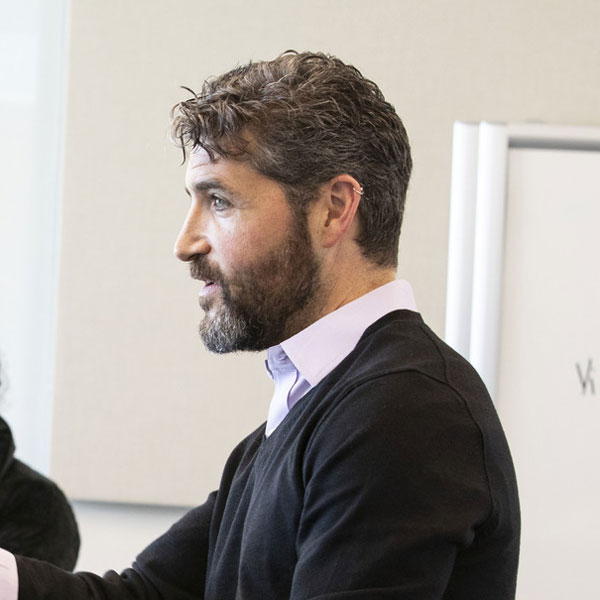Jared Richman, associate professor and associate chair of the English Department, has been awarded the Gale-ASECS Non-Residential Fellowship. Richman’s project, entitled, “Voicing Disability in Eighteenth-Century Print Culture,” seeks to understand how eighteenth-century British literature represented and politicized speech and communication disorders, according to the press release.
In this project, Richman focuses on the “complex triangularization between orality, textuality, and disability and how the expansion of the commercial book trade in England shaped lexical standardization and cultural attitudes towards elocutionary performance during an age of colonialism, human enslavement, and imperial domination,” he says.
Richman has been using critical disability studies as a discursive framework to trace the rise of the elocutionary movement in early modern Britain for the past several years. Critical disability studies focuses on how disability is constructed and understood culturally, politically, economically, and socially, according to the Texas Center for Disability at the University of Texas at Austin.
In addition to fellowship funding, Richman was awarded access to Gale’s Eighteenth-Century Collections Online and the Gale Digital Scholar Lab, which can help fellows advance their work using digital humanities methods. Richman plans to use both databases and new digital research tools with his students, he says.
“I have used Gale’s Eighteenth-Century Collections Online with Colorado College students for many years,” says Richman. “In fact, I was the person responsible for getting the college to acquire access to the database when I was first hired. My hope is to redesign a course around eighteenth-century British literature and disability history to integrate the use of ECCO with Gale’s new Digital Scholar Lab in the classroom.”
As part of this course, which Richman hopes will be offered next fall, students would collaborate with him on a research project. He has written several articles about disability and speech, including “The Other King’s Speech,” where he examines the role that vocal disabilities played in eighteenth-century political discourse and, more recently, “The Royal Treatment: Technology and Temporality in 'The King’s Speech'.”
Gale-ASECS fellowships aim to help scholars expand the field of eighteenth-century studies, either for research or teaching, according to the statement.
Gale partnered with the American Society for Eighteenth-Century Studies to award five researchers a fellowship. The American Society for Eighteenth-Century Studies is dedicated to studying all aspects of history from the later seventeenth century through the early nineteenth century, according to its website.
Gale, which is a part of Cengage Group, works with librarians and educators around both the country and the world to connect learners to essential content through technology. Cengage Group is one of the largest education technology companies in the world.






